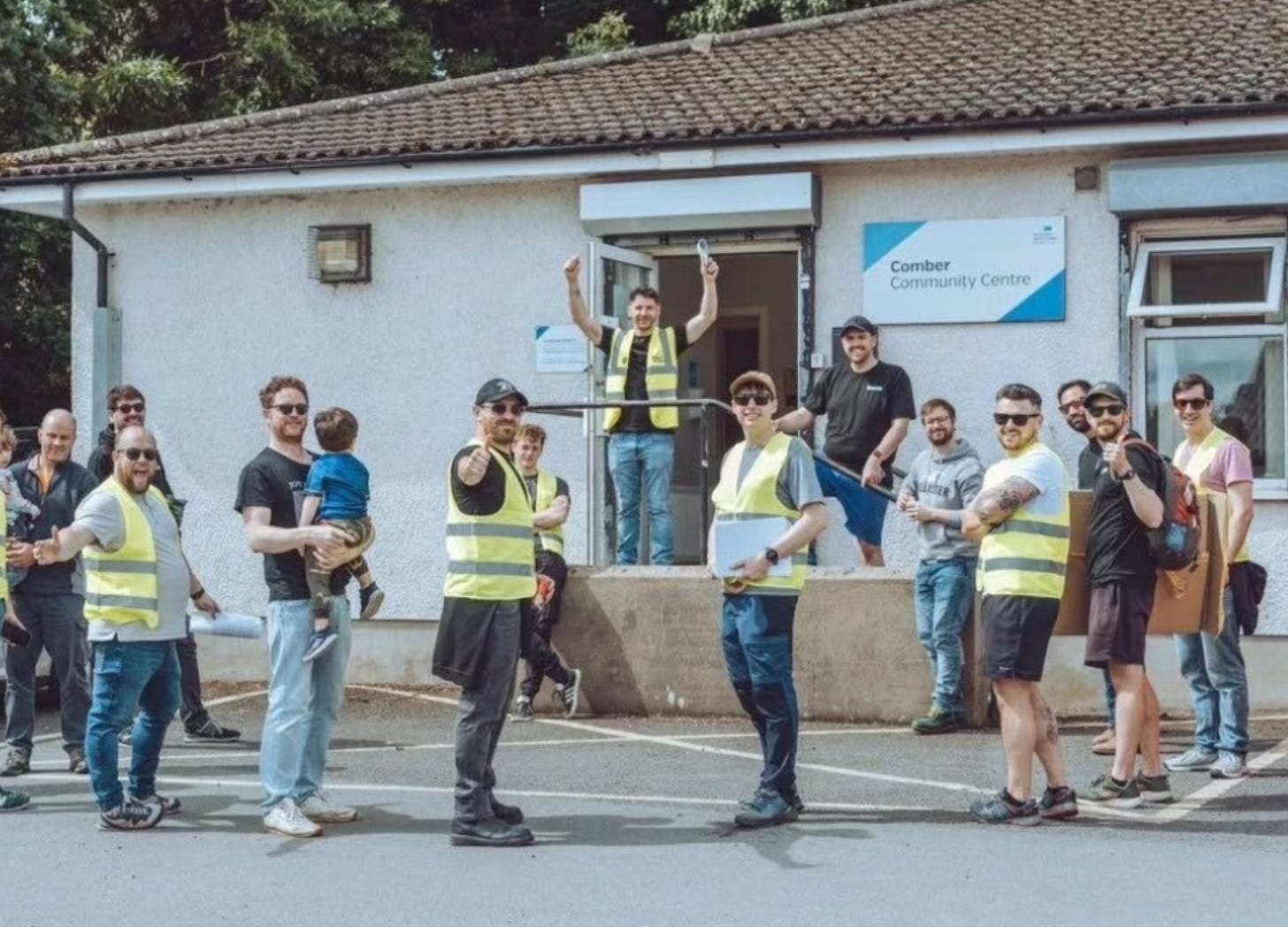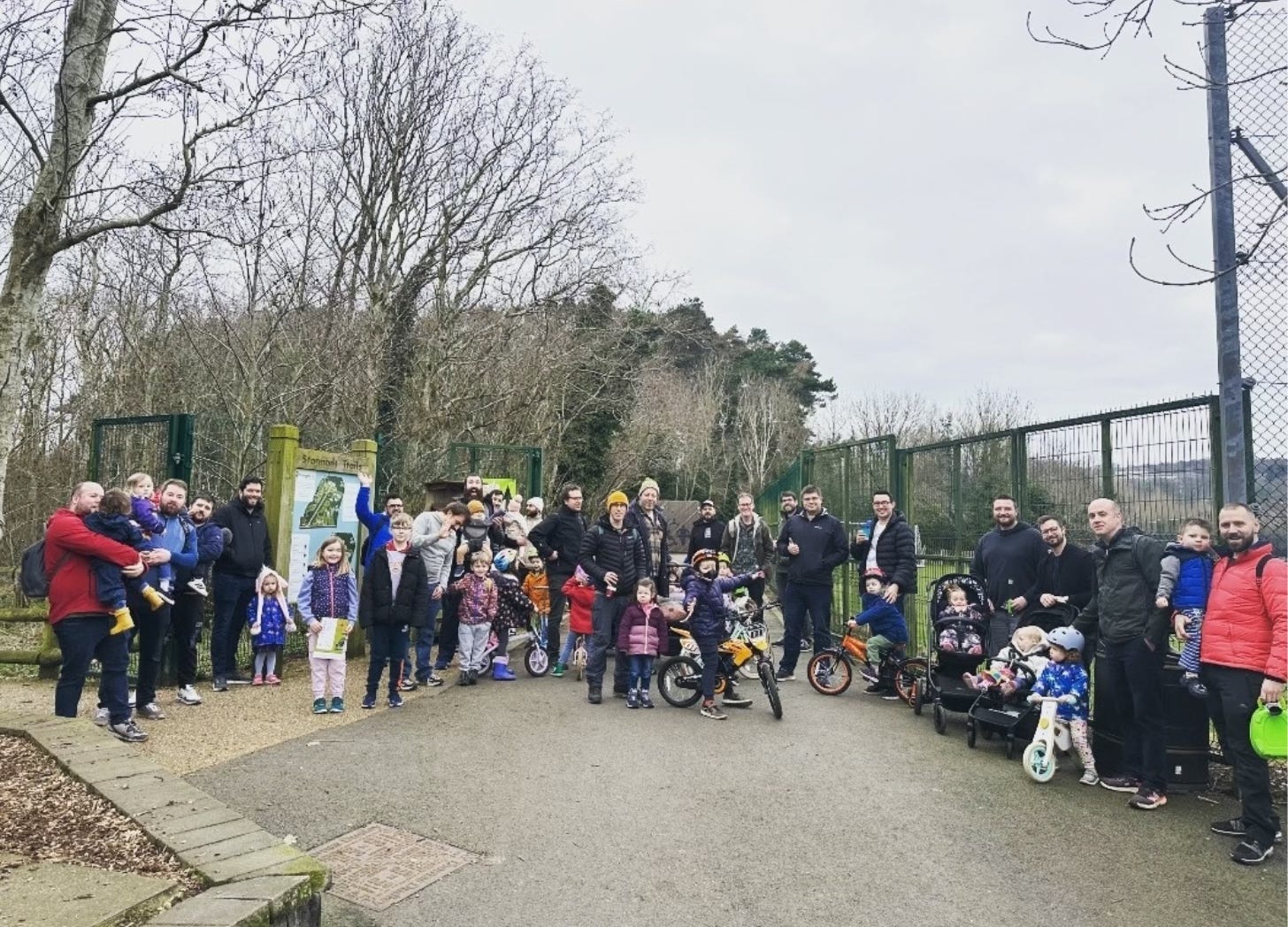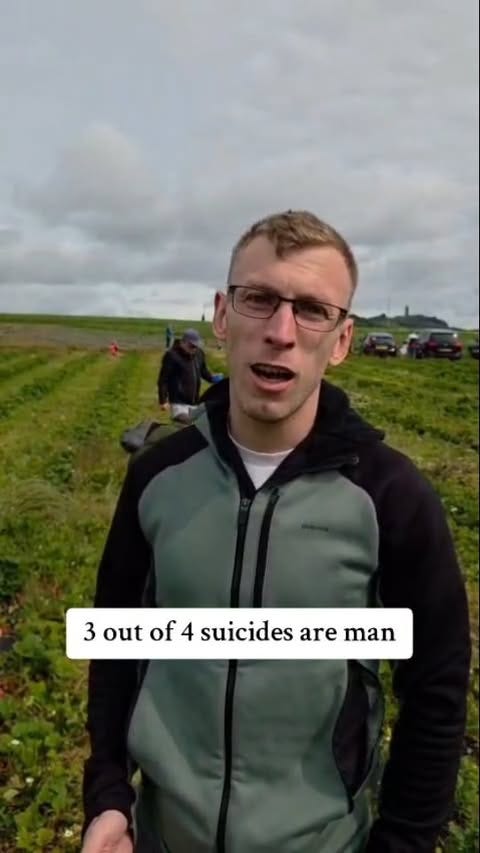'Dad groups' are on the rise, and everyone wins
Dads are showing up emotionally, practically, and socially. The ripple effects are huge.
When Col Bignell became a father in 2022, he watched his wife thrive in groups for new parents - making friends, finding support, and picking up practical parenting wisdom.
But as a dad, Northern-Ireland based Col felt like a third wheel. Everyone was technically welcome, but the spaces were clearly built for mums.
“My wife benefited massively, but I was just sitting in the back, watching the mums talk. You don't feel comfortable enough to get involved,” he tells The Female Lead.
“I thought, this is brilliant… but I would love to have something like that for myself. I looked into the community for anything like it for dads and I couldn’t find anything.”
So he started something himself. What began as six dads meeting to swap stories and offer support has grown into an important fatherhood community in Northern Ireland: Dad Bods. Col’s son Monty was just eight weeks old when the first meeting took place.
In a survey of over 160 dads from one of its WhatsApp groups, Dad Bods found nearly half (48.4%) said they felt uncomfortable in typical parent settings, and 80.6% didn’t feel supported by traditional parenting services.
DadBods is part of a growing number of ‘dad groups’, reflecting the rise in interest in groups to support fathers. The number of stay-at-home dads in the UK has jumped since before the pandemic. 1 in 9 stay-at-home parents in the UK now fathers, up from one in 14 just a few years ago - a “monumental” cultural shift, according to experts.
What better time to create spaces where dads feel supported and able to connect on their own terms?
DadBods focuses on outdoor group meet-ups like walks, hikes and cold-water swims. It leads to a pace and focus that Col finds can help men connect more easily. No forced small talk, no pressure to share. “You can say as much or as little as you want,” he adds.
“It’s dads from all backgrounds and ages - from firefighters with newborns to lawyers with teenagers,” he says. “They wouldn’t normally talk to each other, but here they learn from each other’s struggles and successes.”
These networks can be a lifeline. When one father opened up about personal hardship, “within an hour he had ten dads around the house helping him,” Cold says. When another lost a child, fifty dads attended the funeral, even speaking on his behalf. And when legal restrictions kept dads from seeing their children, the group arranged monitored walks so fathers could reconnect with their children.
Col sees the shift in fatherhood happening in real time. “Some dads stay home full time while the mums work. Ten years ago, that would’ve raised eyebrows. Now? It's just what works for their family. It’s normal.”
Related articles
The impact reaches far beyond dads. Research by the UK government shows that when fathers are actively involved in early caregiving, mothers are better supported at home and more likely to progress in their careers. (Nearly twice as likely compared to those whose partners take on little or moderate childcare.)
The UK Women’s Budget Group also found that increased paternal leave and shared caregiving reduces gender inequality, enabling women to work, rest, and thrive more equally.
“We're definitely breaking the generation of dads who just weren't that involved,” Col says. “These dads really want to support their kids, support their partners, and build a network.”
“We're leading the way for the next generation on how to behave, how to network, how to show up.”







